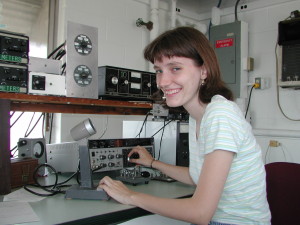Sam Fiorella, Partner at Sensei Marketing, recently wrote “Community Management: The 90-9-1 Rule is Dead,” about how the old concept that 90% of all your followers are just lurking, 9% are engaged, and that only 1% of the community actively produces content. Sam believes this is dead and that it’s closer to 70%/20%/10%, according to some research by Paul Schneider (from back in August of 2011).
I don’t know if I agree with this — I think it’s more like 990-9-1 — we’ve attained a culture that is getting further and further from being an actor and more and more comfortable in the audience.
 From Producers to Audience; from Hobbyists to Consumers
From Producers to Audience; from Hobbyists to Consumers
It’s happened like this over and over: photography, filmmaking, recording, radio, television, computing, the Internet,
message boards, blogging, and now social media. At the beginning of
each of these creative innovation, there was a heyday of hobbyism,
during which ambitious and creative innovators were able to use their
wits, a little money, and loads of sweat equity to become the earliest
of adopters, well before commercial interests even knew there were
commercial opportunities available.I have recently become obsessed with Amateur Radio. Even though radio has been commercialized since the mid-20s, Ham Radio holds on to the hobbyist nature of radio, almost as if radio were captured in amber.
Amateur radio reminds me of what it was like being a blogger in the late 90s using tools like Greymatter, Zope, and Pyra Labs (pre-Blogger).
 You needed to connect to your platform intimately, understanding all
the layers of online communication: hosting, web service, bandwidth,
programing languages, monetization, plugins, domain names, DNS,
moderation, anti-spam strategies, site architecture, SEO, and the rest.
You needed to connect to your platform intimately, understanding all
the layers of online communication: hosting, web service, bandwidth,
programing languages, monetization, plugins, domain names, DNS,
moderation, anti-spam strategies, site architecture, SEO, and the rest.With message boards, it was the same thing. Even if you weren’t a creator, admin, or host, it took quite a lot of effort to become a USENET member.

If you wanted to join alt.fan.lemurs, you really needed to figure out your computer, your modem, you ISP, your terminal, your BBS, and then find your way through a gateway or two, until you found your way into USENET — and then you’d need to find your way around that entire thing.
It’s not like that any more.
There’s very little need to be a hobbyist to engage with the Internet any more. Who even needs to know what Apache is, what an IP address is, how to set up a DNS, navigate the MX records, hack an .htaccess document or be concerned with ping latency. Now, all of that stuff is invisible, seamless. The barrier to entry has been (mostly) razed.
There are still coders, hackers, geeks, nerds, and hobbyist around, but those are hundreds-of-thousands of folks and not hundreds-of-millions — to say nothing of the 2 billion folks who are online, globally.
Today, circa 2014, it’s tough to even get that close. You need to go out of your way, these days, to be able to run your own mail and web server from your own home. It’s not even easy to get an ISP or web host to give you access to shell access.

And, if you don’t know what the hell I’ve been talking about in the last few paragraphs, you’re part of the problem and not the solution — which is a pity because it’s never been easier to become a geek, a coder, a hacker, a tech, an app-maker, a MAKER. The Internet has razed the barrier to entry to all of these things and the tools are all cheap. I mean, haven’t you heard about the Raspberry Pi?
It doesn’t matter. You’re either really into it or you’re not. No matter how easy it is. Or, if you are of a tech brain, maybe you’ve moved on well past the Internet. Maybe you’re entering the world of making the next thing. Either way, there’s surely a dumbing-down of the Internet (one would say this has been happening since AOL opened up a gateway to USENET, back in the early 90s.)
Anyways…
So, as a result, we’re entering a world with fewer and fewer active Internet-, Web-, Blog-, Social Media- and Content-Creators. Social media, including Pinterest and YouTube, is becoming more and more celebrity-, brand-, agency-, and studio-driven.

No comments:
Post a Comment